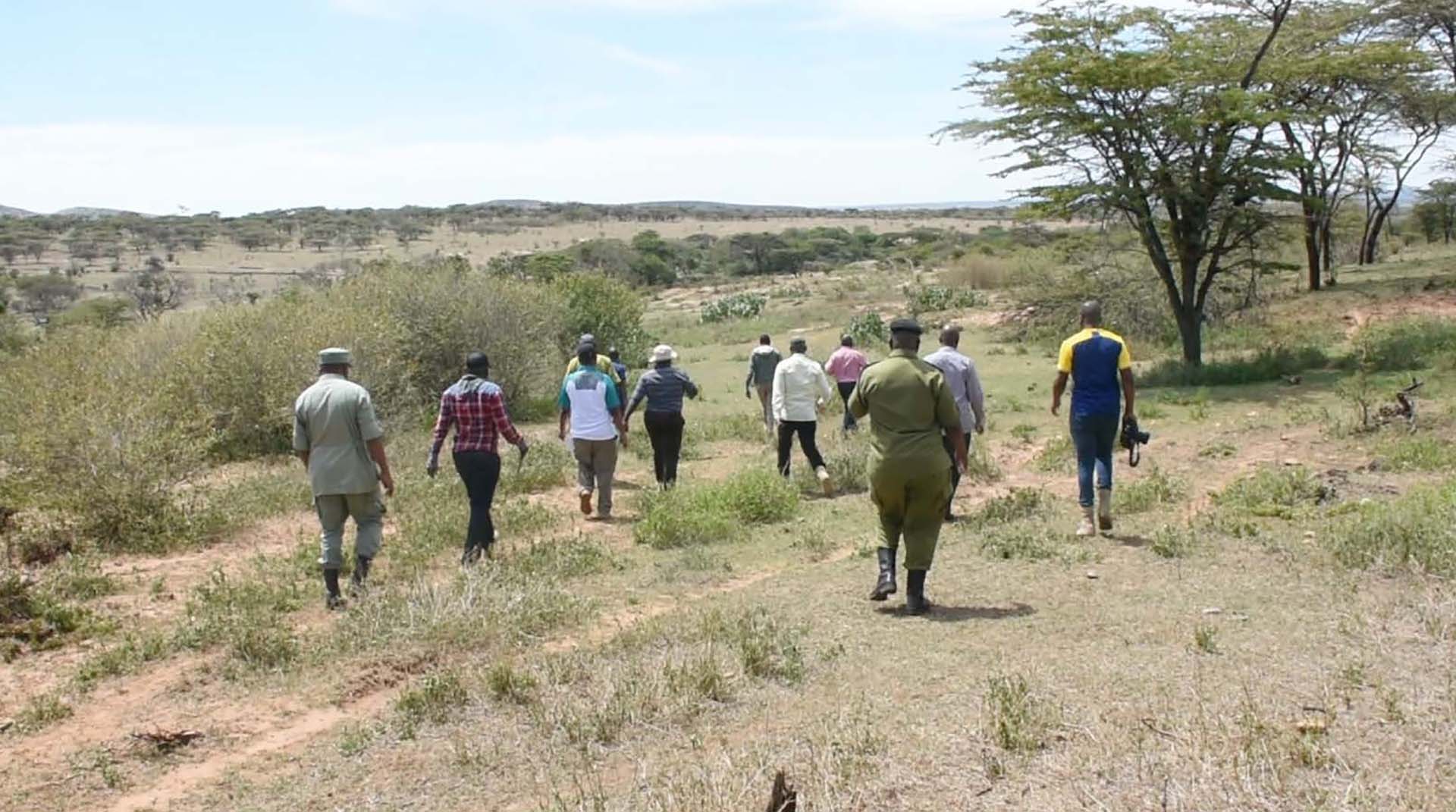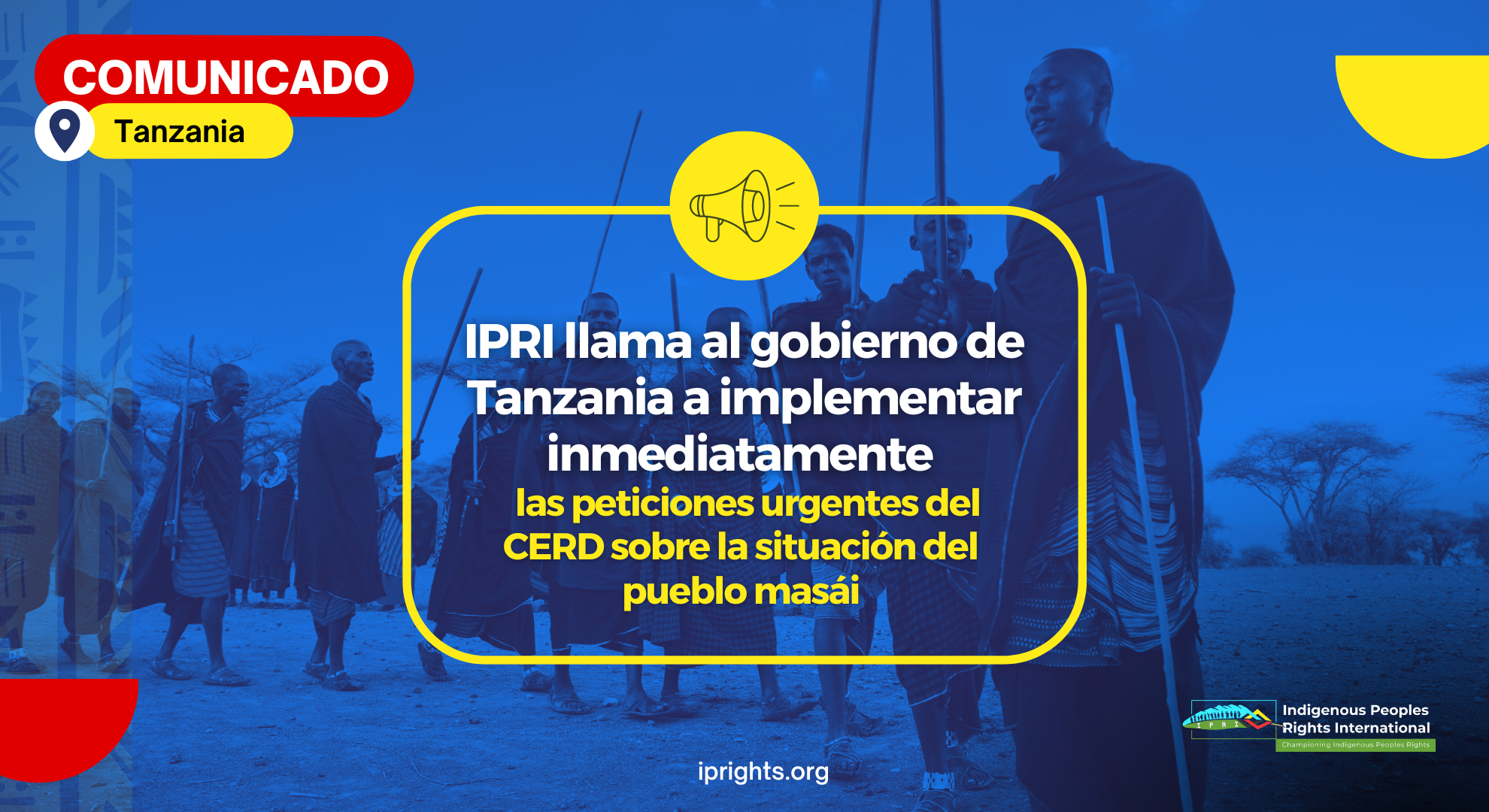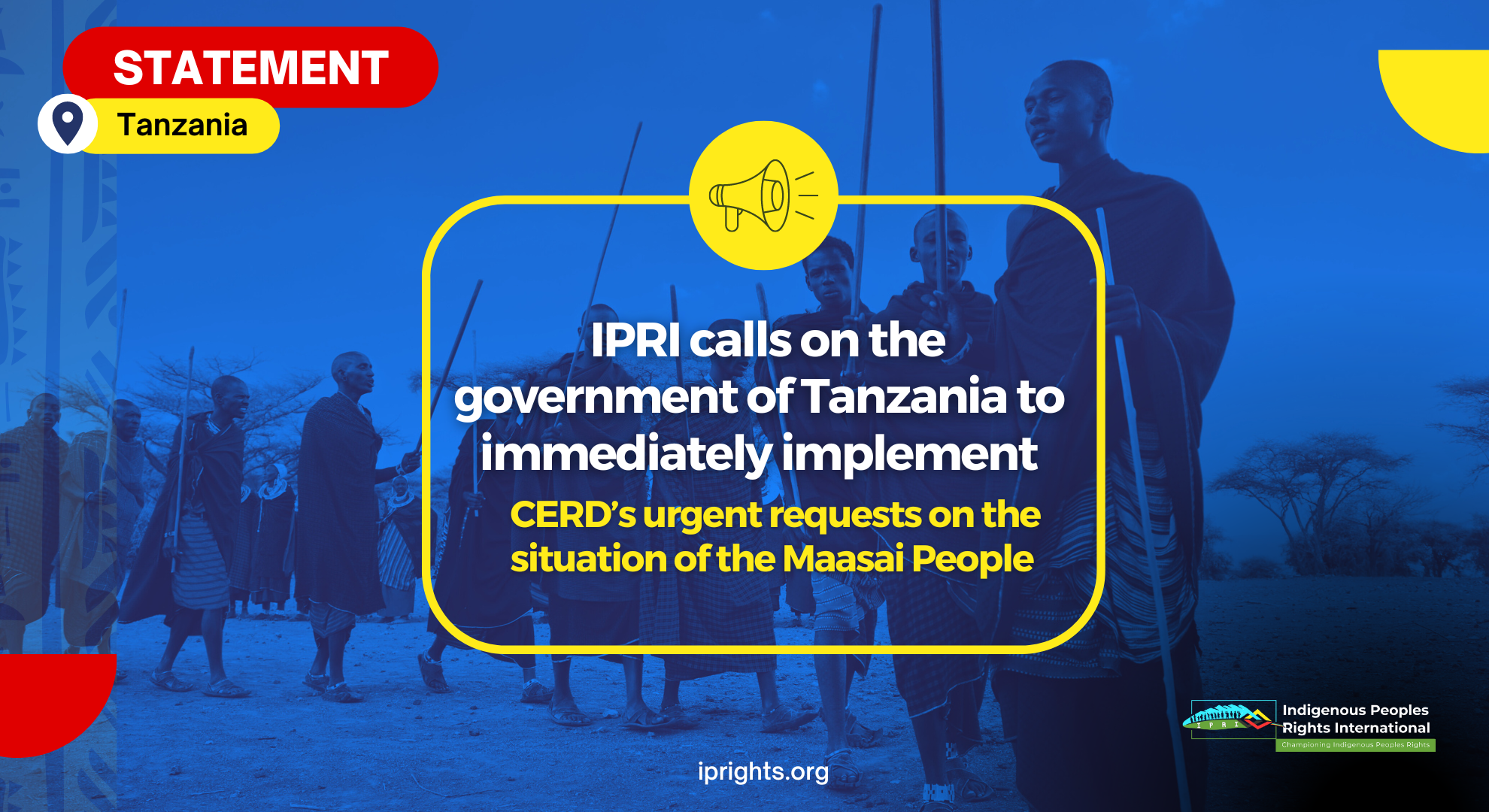How can we survive with dignity if we are evicted from our land?
17 February 2022 - In response to the unjust plan by the Government of Tanzania to evict at least 70,000 Maasai Indigenous pastoralists from their legally recognized customary land in Loliondo area in Tanzania, the Indigenous Peoples Rights International (IPRI) is submitting this Open Letter to the Government of Tanzania and to the Otterlo Business Corporation urging them to stop this plan.
480 organizations and 4,747 concerned citizens from 133 countries have signed this letter, demonstrating far-reaching solidarity support for the affected Maasai indigenous pastoralists from across the globe.
These organizations include indigenous peoples’ networks and advocates; international human rights organizations and NGOs such as Amnesty International and Oxfam; conservation and environment organizations such as Worldwide Fund for Conservation and Greenpeace; and students from various universities, lawyers, activists, human rights advocates, among others.
This action by the international community should be recognized by the Government of Tanzania. The government should heed the demands of the affected Maasai pastoralist for the full respect and protection of their rights to their lands and to their livelihoods in line with its human rights obligations and commitments.
A Maasai leader from the threatened communities said:
“We have been living and conserving this place for decades with our harmonious relations with our livestock and wildlife. However, the government has been consistently targeting our biodiversity-rich land for commercial ventures with rich foreigners that will not only displace us but will also weaken our cultural heritage and sustainable livelihoods as indigenous pastoralists. How can we survive with dignity if we are evicted from our land? We need global support to demand to our government to respect our right to in peace in our customary land.”
The eviction plan in Loliondo area aims to convert the land as wildlife hunting ground for the royal families of Dubai who owns the Otterlo Business Corporation.
In the Ngorongoro National Park, another 70,000 Maasai pastoralists are also facing the threat of eviction, based on the recommendation of the UNESCO Heritage Commission to limit human presence and activities in the park under a fortress conservation approach.
This disregards the fact that these indigenous pastoralists have been living in harmony with their environment even before the declaration of their area as national park.
These threats of eviction of the Maasai indigenous pastoralists under a fortress conservation approach on one hand, and for wild game hunting for the rich on the other, are alarming developments in the context of the global target of 30% conservation of biodiversity by 2030, known as 30x30 target.
It is evident in these cases that the rights and well-being of indigenous peoples are not just sidelined but outrightly violated. Likewise, their vital roles and contributions to biodiversity completely ignored and undermined.
IPRI is deeply concerned that the 30x30 target may result to massive displacement of indigenous peoples; intensify hunger and poverty; increase conflicts and violence against indigenous women and girls; and lead to ethnocide for indigenous peoples as their rights are systematically violated. This may also lead to increased criminalization of indigenous peoples when they defend their lands, territories and resources, and in exercising their rights to practice sustainable resource management systems and livelihoods as part of their conservation measures.
It is thus necessary to ensure the respect, protection and exercise of the rights of indigenous peoples in conservation programmes and measures under the 30x30 target.
The recognition and enhancing conservation practices of indigenous peoples along with provisions for sustainable livelihoods must be guaranteed; and their criminalization in exercising their rights should end.
It is urgent that the behavior of national and global decision makers in treating indigenous peoples as enemies of conservation and development be changed.
Instead, indigenous peoples should be regarded as key actors and partners for the meaningful achievement of the 30x30 target and in attaining sustainable development for all.
####
Note: The Indigenous Peoples Rights International (IPRI) is a global Indigenous Peoples organization that works to protect Indigenous Peoples’ rights, and unite and amplify the call for justice to victims of criminalization and impunity. Please visit the IPRI website for more information - https://iprights.org/.
Contact:
Joan Carling
Email:




